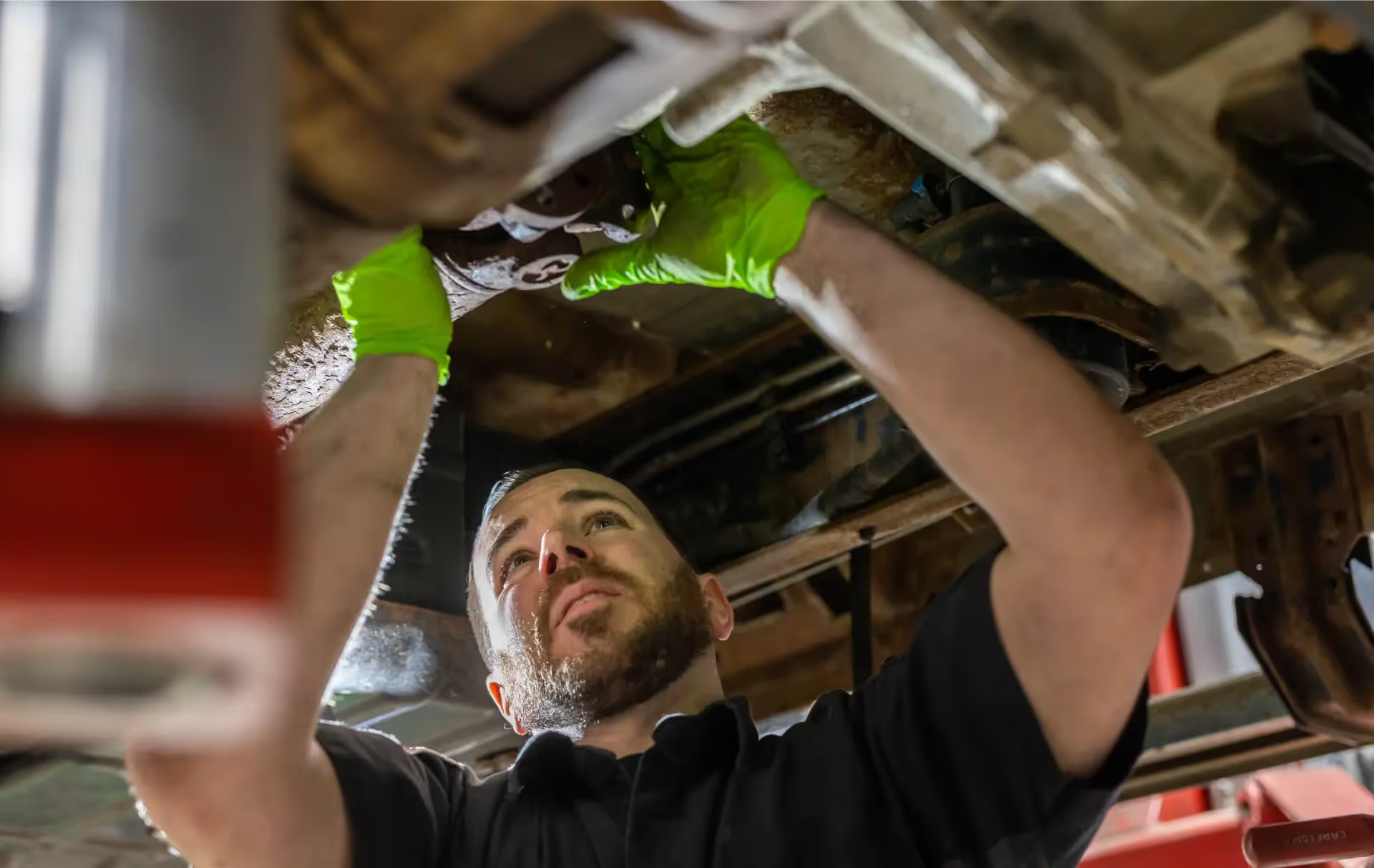The Role of Regular Inspections in Keeping Your Diesel Truck Healthy
Each mile, each load relies on dependable vehicles. Regular inspections are key to diesel truck longevity, not just tasks but proactive steps to prevent breakdowns, maintain safety compliance, and boost efficiency.

Every mile traveled, every load carried, hinges on the reliability of your vehicles. Regular inspections are one of the fundamental pillars of ensuring the longevity of diesel trucks. These inspections are not merely perfunctory tasks; they are proactive measures that can prevent costly breakdowns, ensure compliance with safety regulations, and optimize operational efficiency.
Engine Components Inspection
The heart of any diesel truck is its engine, and ensuring its components are in top condition is non-negotiable. Regular inspections of critical engine elements such as:
- Belts
- Hoses
- Filters
Belts and hoses, subject to constant stress and high temperatures, are prone to wear and tear. A frayed belt or a cracked hose can lead to catastrophic engine failure, disrupting operations and incurring substantial repair costs. Likewise, air and fuel filters must be inspected and replaced as needed to safeguard against contaminants that could compromise engine performance and longevity. By prioritizing engine component inspections, you can mitigate the risk of unplanned downtime.
Fluid Levels Check
Fluids are vital to trucks as they lubricate moving parts, dissipate heat, and facilitate smooth operation. Regular checks of oil, coolant, and transmission fluid are indispensable preventive maintenance practices. Low fluid levels not only jeopardize engine integrity but also increase the likelihood of overheating, transmission slippage, and brake failure. Addressing fluid deficiencies can avert costly repairs and ensure the continued operation of the vehicle. Maintaining proper fluid levels is integral to upholding safety standards and regulatory compliance.
Tire Inspection
Tires are the only point of contact between a diesel truck and the road, making tire inspection a critical aspect of maintenance. The condition, tread depth, and inflation pressure of tires directly impact vehicle stability, traction, and fuel efficiency. Worn or underinflated tires not only compromise safety but also result in decreased fuel economy and accelerated tire wear. Regular tire inspections enable early detection of abnormalities such as uneven wear patterns, bulges, or punctures, allowing for timely intervention and replacement.
Brake System Inspection
The importance of a properly functioning brake system cannot be overstated in the realm of commercial trucking. Regular inspections of components include:
- Brake pads
- Rotors
- Brake Air Lines
Brake system failures can have catastrophic consequences, endangering not only the driver but also other road users. By adhering to a rigorous inspection regimen, you can identify and rectify potential brake issues before they escalate into emergencies. Furthermore, proactive brake maintenance contributes to regulatory compliance and fosters a culture of safety within the organization.
Exhaust System Examination
The exhaust system is crucial in mitigating emissions and optimizing engine performance. Regular inspections of the exhaust system, including the diesel particulate filter (DPF), are imperative to ensure compliance with environmental regulations and prevent engine damage. A clogged DPF or exhaust leak can lead to decreased engine efficiency, increased fuel consumption, and elevated emissions levels. By conducting thorough exhaust system examinations, you can identify issues early on and implement corrective measures to maintain optimal engine health and environmental stewardship.
Electrical System Check
A diesel truck's electrical system encompasses many components, including:
- Batteries
- Alternators
- Wiring harnesses
- Sensors
Regular inspections of the electrical system are essential to prevent electrical malfunctions that could disrupt vehicle operation. Corroded terminals, frayed wires, or failing components can result in a myriad of issues, ranging from erratic engine behavior to complete system failure. By proactively identifying and addressing electrical anomalies, fleet managers can minimize the downtime risk and ensure critical vehicle systems' reliability.
Suspension and Steering Inspection
The suspension and steering systems are integral to vehicle stability, handling, and driver comfort. Regular inspections include components such:
- Bushings
- Shock Absorbers
- Slack Adjusters
- Leaf Springs
- Steering linkage
- Wheel alignment
Worn bushings, damaged shock absorbers, or misaligned wheels can compromise vehicle stability and handling, increasing the risk of accidents and driver fatigue. By prioritizing suspension and steering inspections, you can uphold safety standards, prolong component life, and enhance the overall driving experience.
Fuel System Inspection
Regular inspections of fuel filters, injectors, and lines are essential to prevent fuel contamination and ensure optimal combustion. Contaminants such as dirt, water, or microbial growth can impair injector function, reduce fuel efficiency, and cause engine damage. By conducting comprehensive fuel system inspections, fleet managers can safeguard against costly repairs, optimize fuel economy, and uphold engine reliability.
Undercarriage Inspection
The undercarriage of a diesel truck is exposed to harsh operating conditions, making regular inspections imperative. Inspecting the undercarriage for signs of leaks, damage, or wear enables early detection of potential issues such as oil leaks, worn bushings, or corroded components. Addressing undercarriage abnormalities promptly can prevent further damage and prolong the lifespan of critical vehicle systems. Moreover, proactive undercarriage maintenance contributes to safety, regulatory compliance, and overall fleet efficiency.
Safety Equipment Inspection
Safety is paramount in the commercial trucking industry, and the integrity of safety equipment is non-negotiable. Regular inspections of safety equipment such as:
- Seat belts
- Mirrors
- Emergency kits
- Indicator lights
Worn seat belts, cracked mirrors, or missing safety equipment can compromise driver safety and expose the organization to liability. By prioritizing safety equipment inspections, you demonstrate a commitment to driver welfare and regulatory compliance.
Regular Maintenance Schedule
Establishing a regular maintenance schedule is the cornerstone of effective fleet management. Adhering to manufacturer recommendations and industry best practices ensures that inspections and maintenance tasks are performed in a timely manner. Keeping detailed records of inspections, repairs, and maintenance activities facilitates proactive decision-making and regulatory compliance. By instilling a culture of preventive maintenance, fleet managers can minimize downtime, reduce operating costs, and maximize the lifespan of their diesel trucks.
In conclusion, regular inspections are indispensable in maintaining the health and performance of diesel trucks in the commercial trucking industry. By prioritizing inspections of key components and systems, fleet managers and truck owner-operators can mitigate the risk of unplanned downtime.
To learn more about our preventive maintenance services, click here!
More Articles
.webp)
What to Look For in Professional Heavy-Duty Preventive Maintenance

How Preventive Maintenance Saves You Money

What Maintenance Does Your Fleet Need This Winter?
Contact Us
Get in touch with TCB Truck Service today to schedule service in-shop in Memphis, Tennessee, or via mobile service within 150 miles, including service to northern Mississippi & eastern Arkansas.
We're open Monday through Friday, from 7:00am to 4:00pm.

